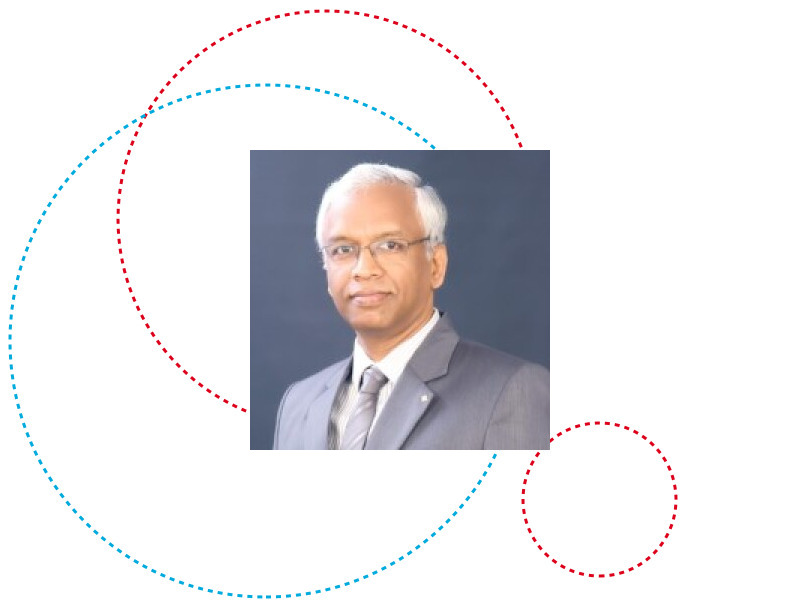Ubiquitous MIMO wireless communication systems catering to the needs of varied applications are shaping the next generation of wireless standards. The emergence of autonomous systems like autonomous land vehicles and drones and Cyber-physical systems have challenged engineers to develop novel MIMO systems. In this talk, we will first consider the challenges of developing a communication system for drone-to-ground links. As a first step, experiments to model the wireless channels for such links are being carried out in IISc and preliminary channel models based on these measurements will be presented in the talk. The next part of the talk will focus on spatial modulation/index modulation techniques where the information is coded as indices of antennas using very few RF transceiver chains thereby reducing the power consumption of the systems which can lead to the design of green communication networks.
Prof. K. V. S. Hari received the B.E. degree from Osmania University(1983); the M.Tech. degree from the Indian Institute of Technology Delhi (1985); the Ph.D. degree from the University of California at San Diego (1990).
His research interests include the development of signal processing algorithms for MIMO wireless communication systems, sparse signal recovery problems, indoor positioning, assistive technologies for the elderly, autonomous navigation systems and neuroscience. During his work at Stanford University, he worked on MIMO wireless channel modelling and is the co-author of the WiMAX standard on wireless channel models for fixed-broadband wireless communication systems, which proposed the Stanford University Interim (SUI) channel models. Since 1992, he has been with the Department of Electrical Communication Engineering, Indian Institute of Science, Bangalore, India, where he is currently a Professor and coordinates the activities of the Statistical Signal Processing Laboratory.
He has been a Visiting Faculty Member at Stanford University, Stanford, CA, USA(1999-00); Affiliated Professor at KTH-Royal Institute of Technology, Stockholm, Sweden (2010-16); and Aalto University Espoo, Finland. He also worked at DLRL, Hyderabad, and at the Research and Training unit for Navigational Electronics, Osmania University. He also co-founded a company, ESQUBE Communication Solutions in Bangalore. He served as an Editor of Signal Processing (2006-16), Senior Associate Editor (2013-18) and currently Editor-in-Chief (Electrical Sciences) of Sadhana (Journal of Indian Academy of Sciences published by Springer). He is a Fellow of IEEE and Fellow of Indian NAE and currently a member of the Board of Governors of the IEEE Signal Processing Society.
